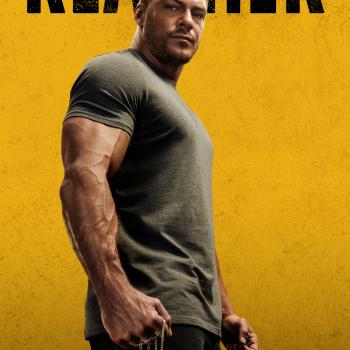Review The Grey, Directed by Joe Carnahan
When The Grey was released two years ago, one critic, who may not have actually seen the movie, witheringly wrote an article titled “What Should Liam Neeson Punch Next?” You can’t entirely blame her. It is easy to mock the film as “Liam Neeson Versus Wolves!” The trailer makes it look exactly like its own parody: a stupid action movie about men running around in the snow punching wolves.
The caricature is grossly unfair. The Grey isn’t Taken in the snow, Rambo in Alaska, or Commando against the canines. It is something closer to The Seventh Seal, with wolves instead of the Grim Reaper.
I don’t mean to say that The Grey, starring Liam Neeson as the leader of a diminishing pack of plane-crash survivors against the elements and predators of the Alaskan hinterland, is as timeless and superlative as Ingmar Bergman’s 1957 Swedish masterpiece. Rather, I mean that few other films I know of are so fully saturated with the existential fear of death.
The Grey is a pervaded by an awareness of mortality. And by “awareness” I mean “terror.” Seriously, these guys are freaking scared of death. Right after the plane crash, Neeson and other survivors find a passenger bleeding to death. He fights against it, yelling “What’s happening?” until Neeson holds his head, looks directly at him, and says gently “you’re going to die,” and talks him through his final moments. The movie grinds to a halt so we can all meditate on how awful it is that this guy is dying. The onlookers are confused, angry, tearful, and finally accepting. It is a very human moment, the very opposite of action-movie violence in which lives are dispensed with all the ceremony of a video game.
That sets the tone for the film. Each character (spoiler) faces his mortality, and the awful thing isn’t so much that they are eaten by wolves, plummet from cliffs, freeze to death, or drown, it is that they stop living. One moment they are living humans; they next moment they are not. This is a horror movie in which the wolves are incidental stand-ins for the ultimate horror.
I have no idea if the premise of the movie is remotely realistic. People who loves wolves hate this movie for turning them into man-eating villains. I have the luxury of enough ignorance to suspend my disbelief and understand the wolves are a (pretty obvious) symbol for death that stalks us all. Here’s another analogy: The Grey is Moby-Dick, except the whale is chasing you.
Director Joe Carnahan builds the atmosphere of dread through the howling snowscape, the wolves’ inhuman growls and alien wails, and Neeson’s gravely fear and despair. Characters die left and right, the men debate the existence of God around a campfire, and Neeson shouts obscenities at the Almighty for failing to prove himself.
After killing and eating one wolf, one character shouts the obvious parallelism right at the wolves: “Who are the animals now? We’re the animals!” We’re just the animals cursed with enough self-awareness to know we’re animals, and then we die. The movie wears its worldview–despairing atheism–on its sleeve. The movie’s few moments of uplift come when characters reflect on their loved ones: more than one spends his final moments thinking about a daughter or a wife. But, of course, they, too, will die.
Such a movie would be pretentious and ridiculous if poorly-filmed, but this has Neeson giving a solid performance and a competent director calling the shots. The infamous final scene does indeed imply some wolf-punching, but the director publicly said he recognized how absurd that would look and chose to leave it ambiguous and unseen. The resulting finale, in which Neeson finally faces Death (in the person of the wolf pack’s alpha male) first with fear, then with manic determination to go down fighting, manages, miraculously, to be moving.
This movie made me sad. Most people do not dwell on death. Of those who do, most probably would admit to feeling the way this movie feels about death: it is an obscenity, a diseased tyrant to which we are all inexorably enslaved. It is so horrible that it is best ignored until we have no choice. Then we should scream and fight for all we’re worth, spending our last moments protesting the cosmic injustice of having been born into this world only to die.
Thank God there is another way, and a freedom from death. This movie is a reminder of what makes the good news of the Gospel good. If you meet someone who fears death, is tempted to despair over the meaninglessness of life, or has recently lost a loved one, don’t dismiss them or give them a pat sermon. Give them a hug and cry with them, because they’re right: death is horrible. And if their is no God, life is horrible too. But if Jesus has destroyed death, it makes all the difference.












